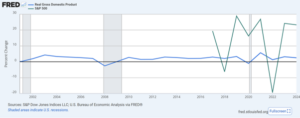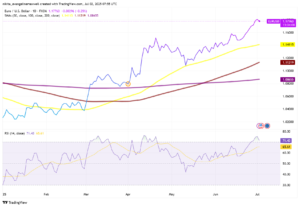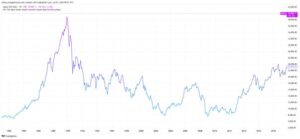Last week, U.S. stock markets showed only modest gains as investors remained cautious about the impact of President Trump’s new tariff policies. The S&P 500 edged up by 0.5%, the Dow Jones gained over 1%, and the Nasdaq rose by 0.2%. Market sentiment remained shaky as Wall Street awaited clarity on how these tariffs would affect the broader economy.
In the week ahead, all eyes will be on the Fed’s preferred inflation gauge, the Personal Consumption Expenditures (PCE) Index, which will be released Wednesday. Economists expect core PCE, which excludes food and energy, to rise 2.7% year-over-year in February, slightly up from January’s 2.6%. On a monthly basis, core PCE is projected to increase by 0.3%, the same as the previous month.
This report is crucial because it will influence the Federal Reserve’s next steps on interest rates. Although the Fed held rates steady last week, it revised its economic outlook to reflect higher inflation and slower growth. Fed Chair Jerome Powell acknowledged that Trump’s tariffs have increased uncertainty, but suggested the inflation spike may be transitory. Still, he admitted the Fed will need to monitor conditions closely.
Beyond inflation data, other key reports this week include updates on manufacturing activity, consumer confidence, and the final GDP reading for Q4 2024. Analysts will be watching for signs of weakening demand or softening business investment.
On the corporate side, Dollar Tree, Lululemon, and KB Home are scheduled to release their earnings. These results could offer further insight into consumer behavior and housing market trends, especially as inflation and interest rates continue to shape economic outlooks.
While Wall Street economists are largely in a wait-and-see mode, investment strategists suggest focusing on sector fundamentals and individual equity performance amid the policy noise. The timing and scope of Trump’s proposed tariffs will remain a central question for investors in the weeks ahead.





